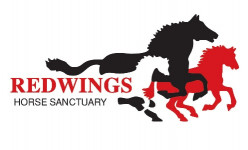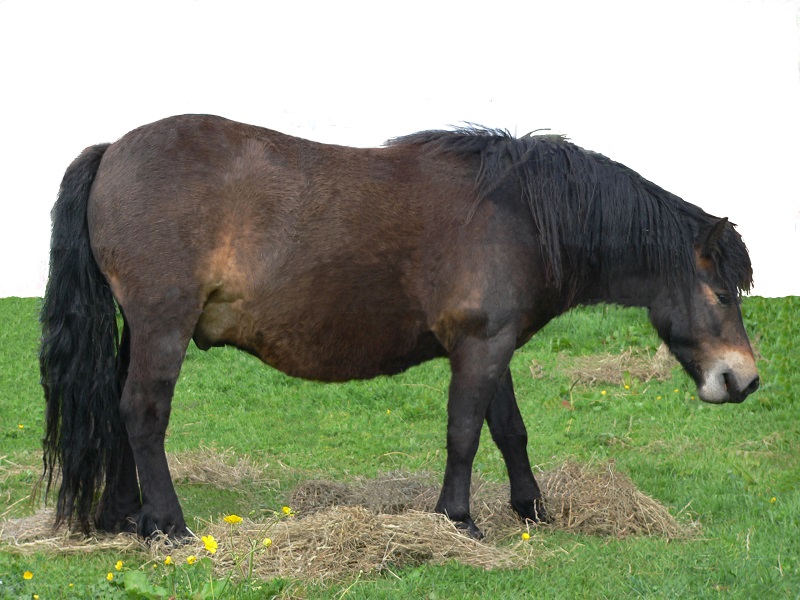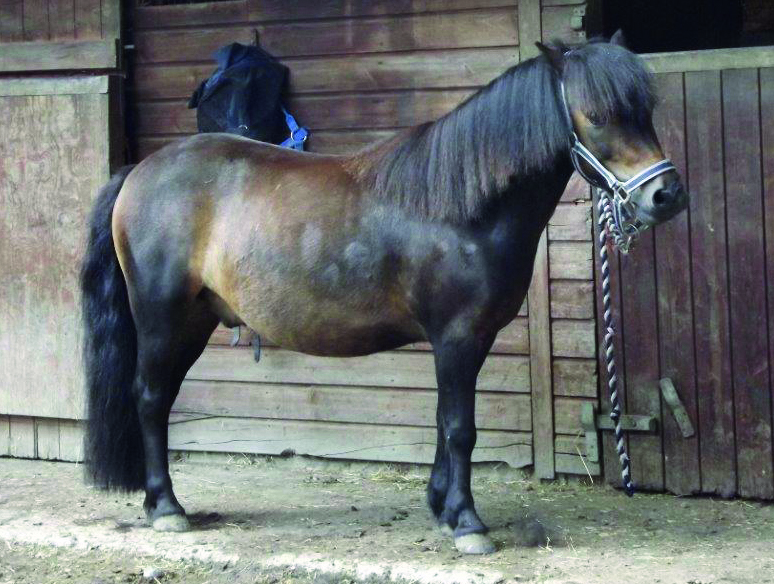Posted: 4th April 2019 | Back to news feed

We all want to keep our horses healthy, and weight management plays a big part in that. But studies show that around half the horses in the UK are overweight, and as many as 70% of native ponies are classed as obese.
Achieving and maintaining a healthy weight for our horses can be challenging, but it’s not an issue we should be shying away from. Some fat is essential for health, but all the evidence shows that too much fat around a horse’s body quickly works against their wellbeing, making it something that needs careful monitoring.
Fat is not only a physical burden, it actively secretes hormones and inflammatory proteins, meaning an overweight horse is at increased risk of serious health problems such as:
- Equine Metabolic Syndrome (EMS) - a hormonal disease (similar to Type II diabetes)
- Laminitis – most common in overweight horses, and often linked to EMS
- DJD (arthritis) – caused or worsened by inflammatory proteins
- Lipomas – fatty tumours in the intestine that increase the risk of colic
Being overweight also places additional stress on a horse’s heart, lungs and temperature regulation, and affects their overall fitness and performance.
But don’t worry if you think your horse may be overweight. Recognising the issue is the first step to solving it and there is loads of practical advice available. Here are just a few ideas for starters!
Top tips to help ensure your horse is fit not fat!
- Regularly ‘fat check’ your horse, ideally once a week. Equine Nutritionist Teresa Hollands shows you how at redwings.org.uk/body-condition-scoring where you can also download a handy condition scoring card
- Could you use a balancer rather than hard feed to supplement a forage-based diet?
- Increase energy use and fitness through exercise – even a non-ridden horse can benefit from in-hand walks and groundwork training
- Don’t give ad hoc treats – they can encourage unwanted behaviours as well as being extra calories!
- Download Redwings’ Lightening the Loadfor more ideas and practical information on keeping your horse in top condition!
- Get in the habit of weighing feed and forage, it may be good for your bank balance as well as your horse!
- Consider a grazing muzzle, but take care to use correctly. Free Grazing Muzzle guidance is available from the National Equine Welfare Council
Speak to your vet or an equine nutritionist for additional advice on healthy and sustainable weight loss if you need to diet your horse, and set yourself achievable goals to help you get there. Good luck!
Meet Pudding!
Left to chomp away on lush pasture to his heart’s content with friends Custard, Banoffee, Sorbet and Trifle, the aptly named Welsh cross Pudding arrived at Redwings dangerously overweight (BCS 4 - 4.5) in 2008.

Although his stubborn weight didn’t cause him any obvious veterinary issues, his obesity was inevitably putting undue pressure on his joints and internal systems.
Since his arrived at the Sanctuary, he had been out on a grass-only and strip-grazed diet and yet he was not losing weight. Redwings’ vets intervened and blood tests confirmed he had Equine Metabolic Syndrome (EMS) making it very difficult for him to lose weight, and most worryingly, leaving him at risk of laminitis.
When grazing, ponies can eat up to 5% of their body weight in a 24-hour period, yet Pudding needed his daily intake to be restricted to 1.5%. This meant gradually introducing four x 1.1kg haynets a day and continuing his ‘no hard feed or treats’ ban.
He spent four months on a woodchip paddock so his diet could be closely monitored and enjoyed daily in-hand walking and horse interaction with his fieldmate as well as weighing sessions on the scales fortnightly.
Pudding managed to lose weight to become a BCS 3 and has moved onto a new life in a Redwings Guardian home. Pudding may not be able to tell us, but at BCS 3 and with his EMS under control he’ll be happier, healthier and at a much lower risk of laminitis and a range of chronic illnesses.

The Equestrian Index newsfeed is compiled from articles submitted by advertising members and expresses the opinions of those members. Watsons Directories Ltd shall not be held liable for any inaccuracies or mis-statements therein.
